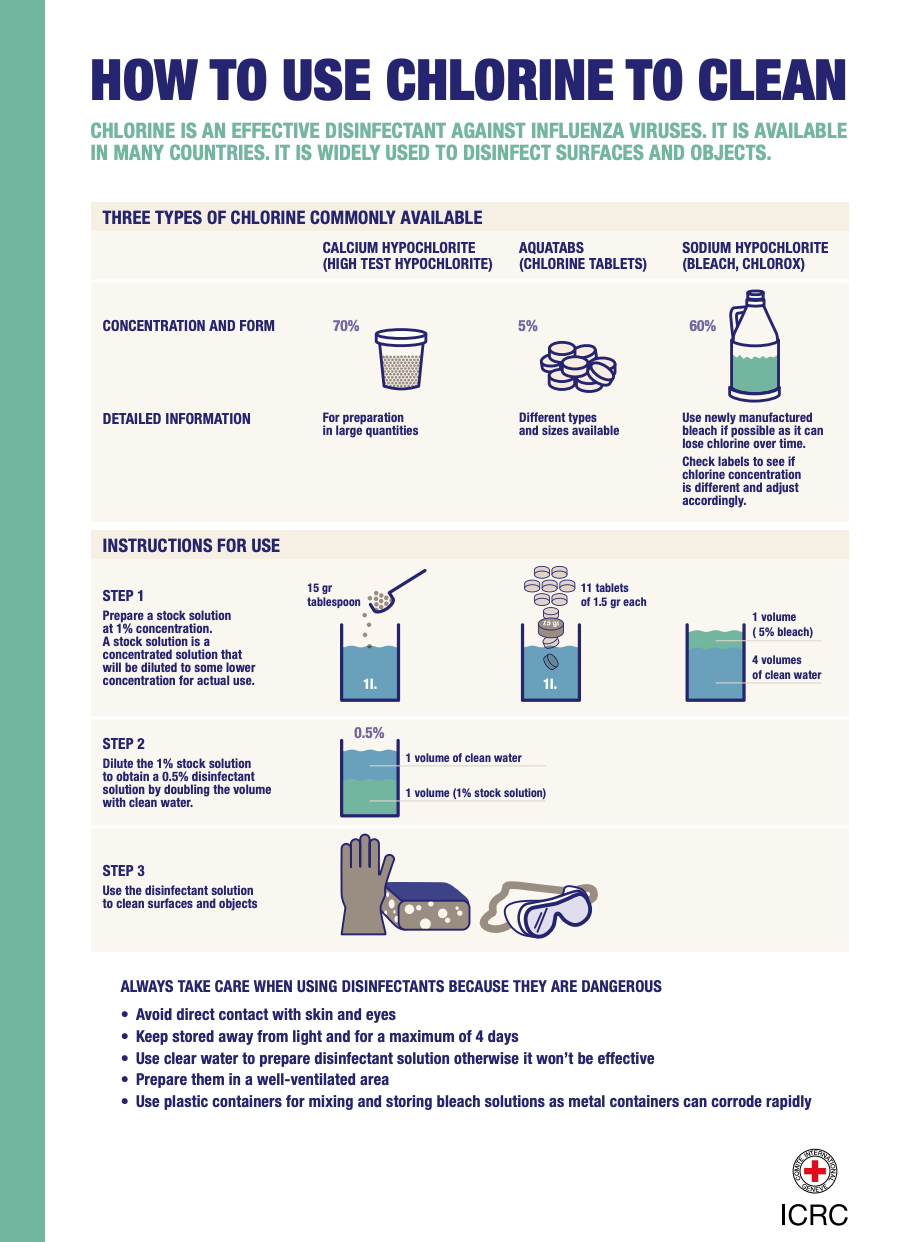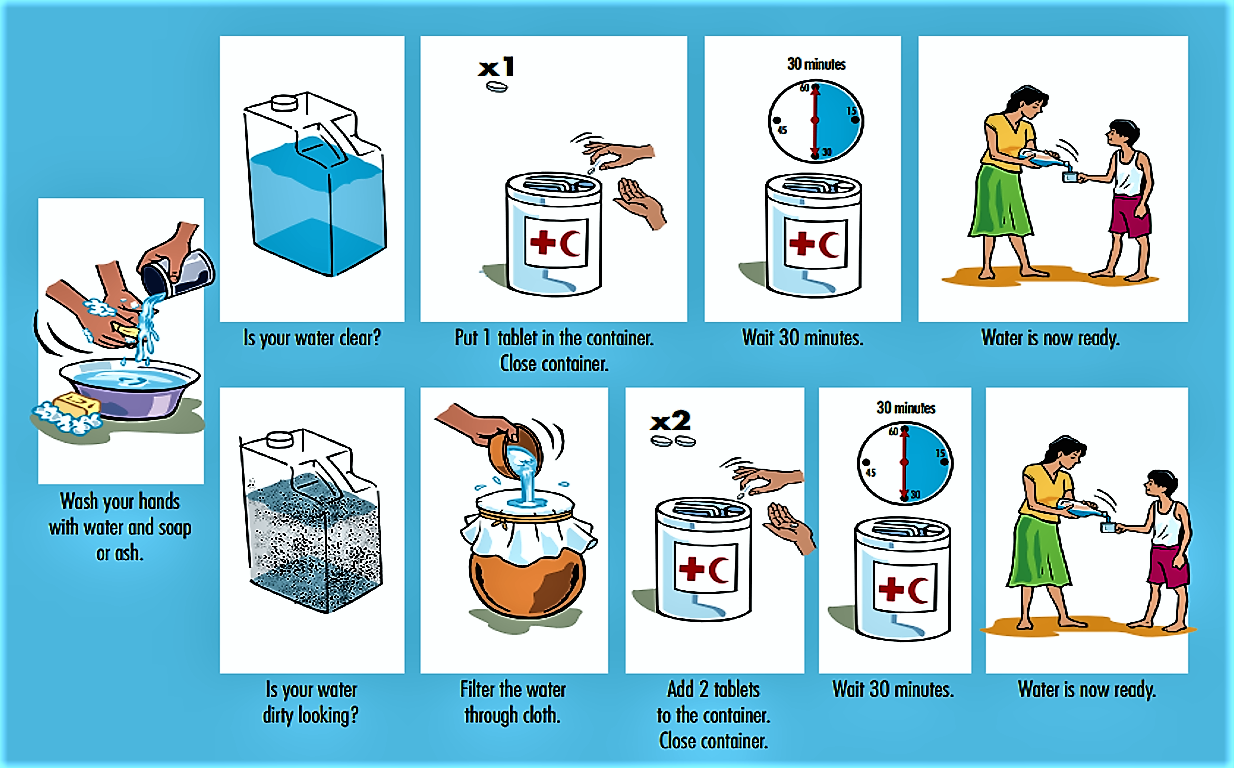Having access to clean, safe drinking water is essential for humankind. Chlorine is a common and effective way to disinfect drinking water and make it safe to consume. Chlorine is used to kill bacteria, viruses and other contaminants that can be found in water sources. It also helps to keep water safe from disease-causing organisms that can make people sick. In this article, we will discuss how chlorine is used to disinfect drinking water, the benefits and risks associated with its use, and the regulations in place to ensure safe drinking water.
Chlorine is a simple but powerful disinfectant that has been used to treat drinking water for more than 100 years. It is highly effective at killing bacteria and other pathogens that can cause waterborne illnesses. It can also oxidize organic matter that can contribute to bad tastes and odors in drinking water. With its long history of safe and effective use, chlorine has become the most widely used water disinfectant in the world.

How is Chlorine Used to Disinfect Drinking Water?
Chlorine is commonly used to disinfect drinking water, and has been used for more than a century. Chlorine is an effective disinfectant because it is inexpensive and kills bacteria, viruses, and other microorganisms. Chlorine is used to reduce the levels of disease-causing organisms in drinking water, and to make water safe for human consumption.
The Process of Adding Chlorine to Water
The process of adding chlorine to water is known as chlorination. Chlorine can be added to water as chlorine gas, sodium hypochlorite, or calcium hypochlorite. The process of chlorination involves adding a small amount of chlorine to water, which reacts with the organic matter and other substances in the water to form disinfection by-products. The chlorine reacts with the organic matter and other substances in the water to form compounds called disinfection by-products. The chlorine compounds then react with the bacteria and other organisms in the water to kill them. The chlorine compounds also give the water a distinctive taste and odor.
The Benefits of Chlorination
The use of chlorine to disinfect drinking water has many benefits. Chlorination is an effective and economical way to reduce the levels of disease-causing organisms in drinking water. Chlorination can also reduce the levels of metals and other potentially harmful substances in drinking water. Additionally, the use of chlorine helps to reduce the need for other more expensive treatment methods, such as filtration and reverse osmosis. Chlorination also helps to reduce the risk of waterborne illnesses and outbreaks.
Frequently Asked Questions
Chlorine is a chemical that is used to disinfect drinking water. It is used to kill bacteria and other contaminants that can be harmful to human health. Chlorine is often added to public drinking water sources to ensure that the water is safe to drink.
What is Chlorine?
Chlorine is a chemical element that is found naturally in the environment. It is a halogen, meaning it is a highly reactive element that forms compounds with other elements. Chlorine is typically found in its elemental form in nature, but it can be combined with other elements to form various compounds. Chlorine is used in a variety of applications, including disinfecting drinking water.
How is Chlorine Used to Disinfect Drinking Water?
Chlorine is used to disinfect drinking water by killing bacteria and other microorganisms that can be harmful to human health. Chlorine is typically added to public water sources in a form known as chlorine dioxide. When the chlorine is added to the water, it reacts with the water to form hypochlorous acid, which is the active ingredient that kills the bacteria. The chlorine also binds with other materials in the water, such as metals, to form compounds that are insoluble and cannot be ingested.
What are the Benefits of Adding Chlorine to Drinking Water?
The primary benefit of adding chlorine to drinking water is that it helps to ensure that the water is safe to drink. Chlorine kills bacteria, viruses, and other microorganisms that can be harmful to human health. In addition, the chlorine helps to reduce the levels of metals and other contaminants that can be present in the water.
Are There Any Risks Associated With Chlorine?
Chlorine is generally considered to be safe for use in drinking water, as it is used in very small amounts. However, there are some potential risks associated with chlorine, such as irritation to the eyes, skin, and lungs. It is important to follow the instructions for adding chlorine to water, as using too much can cause health problems.
What Are Some Alternatives to Chlorine?
Chlorine is not the only chemical that can be used to disinfect drinking water. Other options include ultraviolet light, ozone, and chloramines. These methods are often used in addition to chlorine to provide additional protection against bacteria and other microorganisms. In some cases, they can be used as alternatives to chlorine, depending on the specific needs of the water source.

Chlorine is a powerful disinfectant that is used to treat many of the world’s drinking water sources. It is a cheap, easy to use, and effective way to ensure that water is safe to drink. Chlorine has been used for decades to improve the quality of drinking water, and its use has been credited with saving countless lives. Chlorine is also used to disinfect swimming pools and wastewater.
Chlorine is a powerful tool for protecting people from waterborne illnesses. It is important to use chlorine correctly, so that it will be effective and safe. When used correctly, chlorine is an effective and affordable way to keep drinking water safe for everyone.
Whether it is used to disinfect drinking water, swimming pools, or wastewater, chlorine is an important tool for protecting people from waterborne illnesses. Its use has saved countless lives and continues to be an essential part of ensuring safe, clean drinking water.
